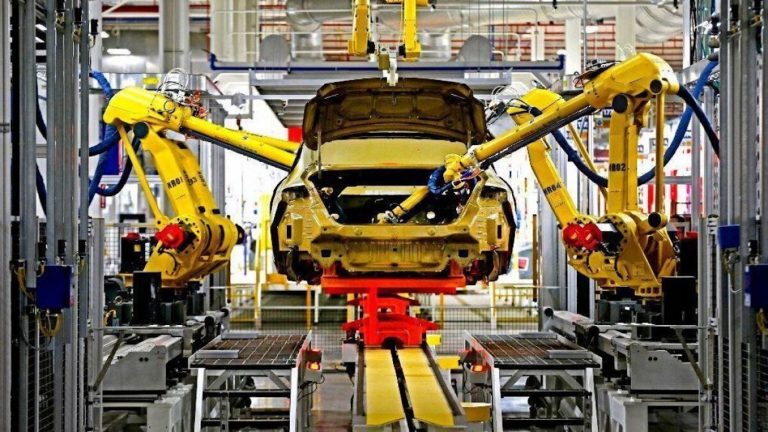Andrew Yang ran his presidential campaign on the promise of providing American citizens with a monthly stipend to counter the effects of job loss. According to Yang, “up to 30% of jobs are at risk of automation.” The fear of the impact of new technologies is nothing new. The 19th Century had its Luddites, workers that took to smashing early industrial looms in which they saw a threat to manual labor jobs. Technophobia is a reactionary idea that continues to be popular, and as history shows, unjustified.
It is easy to imagine the histrionics about the car when it was first launched in the market. The worry then was that the car would put carriage makers out of business. Absent was the foresight that one day cars would create millions of jobs in manufacturing, the service industry, software development; as well as ancillary businesses like gas stations, rest stops, and tourism. Also, the carriage part makers of the time quickly adapted to the horseless carriage, finding their products in demand. The invention of the lightbulb may have put most candlemakers out of business, but the millions of jobs it created since then that have made the presence of lightbulbs ubiquitous in our lives: from the inside of refrigerators, camera flashes, lighthouses, flashlights, etc. More recently, we can recall what was said about the threat of desktop computers to typing pools—we all know how that played out.
These examples beget the question that the technophobic prophets refuse to ask: what new jobs will automation bring?
It is a fallacy to believe that the only jobs available with the coming automation revolution will involve coding—relegated to a few nerds and inaccessible to everyone else. Robots are not made out of code alone. I have a vacuum robot at home, which is mostly made up of plastic, metal, and silicone. This robot supports hundreds of jobs: components have to be mined, manufactured, shipped, assembled, and even serviced—not just programmed. I first saw my robot in a YouTube ad: a box had to be designed for it, the instructions had to be printed—each new piece of automation will bring and sustain dozens of jobs.
The purpose of automation is to diminish human capital costs to businesses, whether that comes from greater efficiency or reduction in human error. Once those costs are decreased, businesses can use those savings to invest in other areas that automation cannot replace like managing, marketing, research, development—everything else that humans do better than machines. Cost-saving brought on by automation will allow companies to expand and open up new branches; enabling them to offer more services or goods which will require more hiring. This is a recipe for job creation.
Automation will also lead to greater entrepreneurship and to making manufacturing more affordable. Automated mini-factories like 3D printers are allowing entrepreneurs to set up businesses in their homes. Throughout the coronavirus pandemic, there have been calls to bring manufacturing jobs to the U.S. to reduce American dependence on foreign countries. This will not be affordable unless manufacturing can be automated; American companies cannot compete with low-wage workers overseas.
The wellspring of new industries is one of the benefits of automation—safety will greatly benefit as well. We are in the middle of a pandemic where a virus is spreading from human to human and from lying dormant on surfaces infecting people that come in contact with it; meanwhile millions of people are being kept from work to stop contagion in crowded public transit. Automated self-cleaning cars could take people to work and deliver groceries reducing contagion rates and economic devastation.
National security is also set to benefit from the coming tech revolution. The defense industry is pushing along with delivering greater automation to the armed forces which will reduce the need to put military personnel in harm’s way and ensure greater accuracy when dealing with threats, both measures could one day help reduce our bloated defense budget. In the United Kingdom’s Royal Navy, robots are already being used in minesweeping, a high-risk job that was once performed by divers.
Automation will replace repetitive, dull and dangerous work, and will remove humans from risky and often loud workplaces such as factory floors. It will replace these jobs with more analytical and gratifying work. Less human hours will be spent on the arduous and boring tasks that are currently required to gather data, and jobs will be created in order to analyze and interpret that data.
When faced with technological change, it is easy to imagine the worst and allow pessimism to drive our discourse as a society. This might be an ingrained suspicion formed in our culture’s psyche by works like Frankenstein or The Matrix. But how about viewing the coming wave of automation through more optimistic eyes? Not because of some kind of futuristic techno-utopian delusion but because the past has shown us that this is what we can expect.














Well with the advent of OpenAI and these programs being able to learn on art, code, speech and everything else this article has aged *incredibly poorly* and it’s less than a year old.
[…] automation has a tense and fascinating history that still reverberates with many people today. During the Luddite revolts in the 19th Century, textile workers […]
[…] the trajectory of economies transforms. As the symposium of innovation convenes, and the rhythm of automation reverberates, the imperative is not to merely observe but to be active participants in the grand narrative of […]